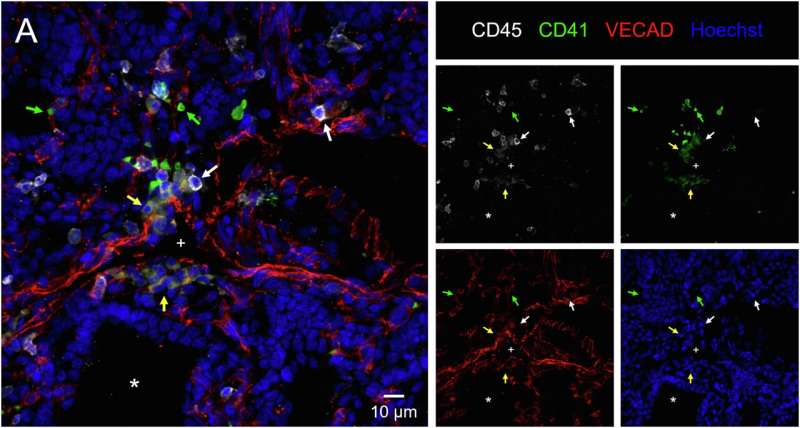Blood
Lungs play a critical role in fetal blood development, new study finds
A newly-released study by Boston Medical Center (BMC) and Boston University’s Center for Regenerative Medicine (CReM) has found that the fetal lung is a potential source of hemogenic endothelial cells (HECs) that have the capacity to make blood. The findings broaden the understanding of where and how blood forms, which has the potential to enhance the treatment of blood-related diseases such as leukemia and lymphoma. Previously, no lung HECs had ever been detected.
The full study was published today in Blood Advances.
“Our findings show that hemogenic endothelium, which was previously thought to be restricted to a very early window of fetal development and found only in hematopoietic tissue, is present in the fetal lung,” said lead author Anthony Yeung, MD, Ph.D. candidate of Boston Medical Center and Boston University’s Center for Regenerative Medicine.
HECs are a rare sub-population of vascular cells that make up a small percentage of the developing embryo, and were commonly thought to exist in only a small window of time during gestation. These cells, which drive the initial formation of all blood types, were thought to be primarily limited to the aorta gonad mesonephros (AGM). The new study found HECs in the lungs at much later stages of development, suggesting that the lungs play a greater role in blood development than previously known.
“Although our blood and how it forms has been studied for centuries, these findings make us question what we know and tell us that this process is much more complex and elegant than previously thought,” said senior author George J. Murphy, Ph.D., co-founder of CReM and Associate Professor of Medicine in the Division of Hematology-Oncology at Boston University Chobanian & Avedisian School of Medicine.
Potential for novel therapies
Researchers are optimistic that their findings will be important in the development of novel methods to produce blood stem cells that can be utilized for cellular therapies, such as bone marrow transplantation. Currently, scientists are unable to robustly produce and maintain blood stem cells in culture due to our incomplete understanding of all the important molecular processes that are necessary to make a fully functional blood stem cell. Gaining a better understanding of where and how blood cells form gives researchers a better understanding of how to produce blood stem cells that can be used in future treatments.
“This study helps us to better understand how the location and timing of blood development impacts our overall health and development,” Yeung said. “We hope that our work will add to the growing body of knowledge about blood development that will be utilized towards the creation of novel therapies for various types of hematological diseases and cancers.”
More information:
Anthony K. Yeung et al, De-novo hematopoiesis from the fetal lung, Blood Advances (2023). DOI: 10.1182/bloodadvances.2022008347
Boston Medical Center
Citation:
Lungs play a critical role in fetal blood development, new study finds (2023, September 20)
retrieved 20 September 2023
from https://medicalxpress.com/news/2023-09-lungs-play-critical-role-fetal.html
This document is subject to copyright. Apart from any fair dealing for the purpose of private study or research, no
part may be reproduced without the written permission. The content is provided for information purposes only.

